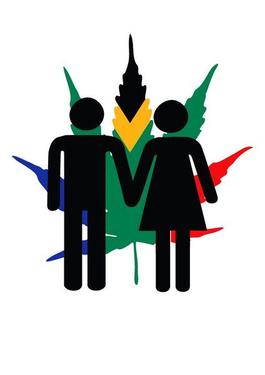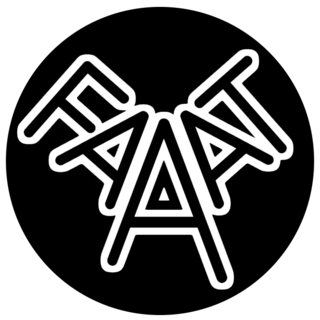Related Research Articles

The Single Convention on Narcotic Drugs, 1961 is an international treaty that controls activities of specific narcotic drugs and lays down a system of regulations for their medical and scientific uses; it also establishes the International Narcotics Control Board.
The International Narcotics Control Board (INCB) is an independent treaty body, one of the four treaty-mandated bodies under international drug control law.

The Ministry of Home Affairs, or simply the Home Ministry, is a ministry of the Government of India. As an interior ministry of India, it is mainly responsible for the maintenance of internal security and domestic policy. The Home Ministry is headed by Union Minister of Home Affairs Amit Shah.

The Anti-Narcotics Force is a federal executive bureau of the Government of Pakistan, tasked with combating the narcotics smuggling and use within Pakistan. ANF works under the umbrella of Pakistan Army and Ministry of Narcotics Control (Pakistan) of which Shahzain Bugti is the minister since March 2022. Due to misconception on Section 4 of ANF ACT 1997, the force's head consisted of the active-duty general officer of Pakistan Army. Although the law prescribes that any competent person may be appointed as Director-General. Currently, a two-star Army Officer, Major general Muhammad Aniq Ur Rehman Malik is deputed as Director-General. The ANF also has sole responsibility for coordinating and pursuing Pakistan narcotics investigations abroad.

Crime in Bangladesh is present in various forms such as drug trafficking, money laundering, extortion, contract killing, fraud, human trafficking, robbery, corruption, black marketeering, political violence, terrorism and abduction, wildlife trafficking, among others.
Health in Bhutan is one of the government's highest priorities in its scheme of development and modernization. Health and related issues are overseen by the Ministry of Health, itself represented on the executive Lhengye Zhungtshog (cabinet) by the Minister of Health. As a component of Gross National Happiness, affordable and accessible health care is central to the public policy of Bhutan.

Crime in the Maldives ranks from low to moderate, but crime rates in the country have increased significantly in recent years. Incidents of theft on beaches or in hotels do occur. Juvenile delinquency is a growing problem in the Maldives. According to the data available from the Ministry of Defence and National Security, there has been an increase in petty crime in the country. In 1992, 169 cases of petty crime were reported, while the number was 462 in 1996. The number of sentenced persons under the age of 19 also increased from 391 in 1988 to 512 in 1998. Fraud examiner Peter Lilley in his book Dirty Dealing writes that money laundering is not a significant problem in the Maldives.

The Narcotics Control Bureau is an Indian central law enforcement and intelligence agency under the Ministry of Home Affairs, Government of India. The agency is tasked with combating drug trafficking and the use of illegal substances under the provisions of Narcotic Drugs and Psychotropic Substances Act.

Kathleen Mathea Falco is a leading expert in drug abuse prevention and treatment who served as the first U.S. Assistant Secretary of State for International Narcotics and Law Enforcement Affairs during the Carter Administration. Currently, Falco is the President of Drug Strategies, a nonprofit research institute based in Washington, D.C., which she created with the support of major foundations in 1993 to identify and promote more effective approaches to substance abuse and international drug policy.

The Federal Drug Control Service of the Russian Federation or FSKN was a federal law enforcement agency of executive authority authorized to combat illicit drug trafficking. It was responsible for drafting state policy, legal regulation, control and monitoring in combating the trafficking of drugs, psychotropic substances, and their precursors. It was commonly known as The Drugs Police (Наркополиция).
Arup Ratan Choudhury is a Bangladeshi dental specialist and media personality. He is currently the head and senior consultant at the Department of Dentistry, Bangladesh Institute of Research and Rehabilitation for Diabetes, Endocrine and Metabolic Disorders (BIRDEM).

The Ministry of Home Affairs is a ministry of the People's Republic of Bangladesh. An interior ministry, it is mainly responsible for the maintenance of internal security and domestic policy. It contains two divisions 1. Public Security Division, 2. Security Service Division It has been modelled to function as an ideal and efficient ministry of the government.

The cultivation, transport, sale, purchase, and possession of all forms of cannabis has been illegal in Bangladesh since the late 1980s, but enforcement efforts are lax and the drug continues to be popular there. Since 2017, enforcement has become harsh on marijuana laws and the government has been cracking down on cannabis.
Department of Narcotics Control is the main government agency responsible for narcotics control in Bangladesh.

The Dagga Couple or DC is a pro-cannabis lobbyist organisation from South Africa founded by Julian Stobbs and Myrtle Clarke after the two were arrested for the possession and dealing in the substance in 2010. Rather than plead guilty, the couple decided instead to sue seven sectors of government that maintained and enforced the policy of cannabis prohibition in the country resulting in what has been described locally as the Trial of the Plant in 2017.
Cannabis in Jordan is illegal. In 2018, Anwar Tarawneh, Director of the Anti-Narcotics Department (AND) reported that "marijuana is the most consumed drug in Jordan", with AND seizing 1.5 tonnes of cannabis that year. As Jordan is a signatory to the 1961 United Nations Single Convention on Narcotic Drugs.
Methamphetamine in Bangladesh is an illegal substance that is often consumed in the form of Yaba. Yaba is a drug made by combining methamphetamine and caffeine. They are sold as colorful pills. There are three forms of Yaba in Bangladesh, they are R-7, Controller, and Champa.
The Narcotics Control Act 1990 is a Bangladeshi law that regulates narcotics including production, distribution, transaction, possession, transportation, cultivation, etc. The act was passed in 1990.

For Alternative Approaches to Addiction, Think & do tank is an international non-profit organization working on drug policy, created in 2015 and based in Paris, France.
Security Service Division is a Bangladesh government division under the Ministry of Home Affairs of Bangladesh responsible for agencies under the ministry that are not law enforcement. Md. Abdullah Al masud Chowdhury is a government secretary and current in charge of the division.
References
- ↑ "Laws on Narcotics control". Law and Our Rights. The Daily Star. Retrieved 20 April 2017.
- ↑ International Narcotics Control Board (1968). Report of the International Narcotics Control Board for ... United Nations Publications. p. 33. ISBN 9781441621849.
- ↑ "Welcome to Department of Narcotics Control Webpage..." Department of Narcotics Control. Archived from the original on 21 April 2017. Retrieved 20 April 2017.
- ↑ "A backdated law to control updated Drug Abuse". The Daily Star. 2 July 2013. Retrieved 20 April 2017.
- ↑ Rahman, Siddiqur. "Countering drug trafficking in Bangladesh". The Daily Star. Retrieved 20 April 2017.
- ↑ "Inaction on narcotics". The Daily Star (Editorial). Retrieved 20 April 2017.
- ↑ "Narcotics guardians go into long hibernation". The Daily Star. Retrieved 20 April 2017.